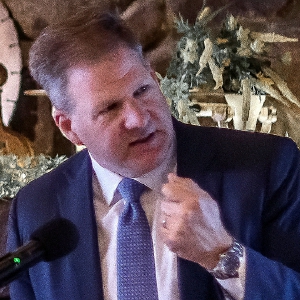Who took what: A look at pharmaceutical money in New Hampshire
| Published: 09-23-2016 2:04 PM |
Pharmaceutical drug companies and lobbying groups spent $664,399 toward the campaigns of New Hampshire’s state and federal politicians, data from the Center of Public Integrity and the Associated Press shows.
An investigation by the two groups shows drug companies and allied advocates lobbied state and federal lawmakers across the country to respond to the needs of pain patients, in some cases trying to block legislation restriction prescription narcotic prescribing as well as prescription drug monitoring programs.
Republican U.S. Sen. Kelly Ayotte collected more money than any of the other 90 New Hampshire politicians, data shows. From 2009 to 2015, Ayotte took in $138,650.
That’s almost $100,000 more than the money collected by Democratic U.S. Sen. Jeanne Shaheen in the same number of years. Shaheen took $39,739 from 2007 to 2014.
When asked about the donations, Ayotte campaign spokeswoman Liz Johnson said, “Kelly receives support from people across New Hampshire and the country who support her efforts to cross the aisle and deliver results for the people of New Hampshire.”
A spokesman for Shaheen reiterated the senator’s commitment to keeping prescription drug costs low and increase opioid regulations.
The organizations who donated the most to New Hampshire lawmakers included prescription drug giant Pfizer, which gave $157,225 from 2006 to 2015, and lobbying group Pharmaceutical Research and Manufacturers (also known as PhRMA), which gave $103,985.
PhRMA represents companies including Purdue Pharma Inc., the maker of the prescription opioid OxyContin.
Article continues after...
Yesterday's Most Read Articles
 “It’s beautiful” – Eight people experiencing homelessness to move into Pleasant Street apartments
“It’s beautiful” – Eight people experiencing homelessness to move into Pleasant Street apartments
 No deal. Laconia buyer misses deadline, state is out $21.5 million.
No deal. Laconia buyer misses deadline, state is out $21.5 million.
 N.H. Educators voice overwhelming concerns over State Board of Education’s proposals on minimum standards for public schools
N.H. Educators voice overwhelming concerns over State Board of Education’s proposals on minimum standards for public schools
 Matt Fisk will serve as next principal of Bow High School
Matt Fisk will serve as next principal of Bow High School
 High schools: Coe-Brown softball wins 5th straight, Concord’s McDonald pitches first varsity win, Tide’s Doherty scores 100th career point
High schools: Coe-Brown softball wins 5th straight, Concord’s McDonald pitches first varsity win, Tide’s Doherty scores 100th career point
 Construction of housing project in former Church to begin with parking dispute in the rearview
Construction of housing project in former Church to begin with parking dispute in the rearview
One aspiring lawmaker – independent candidate for U.S. Congress District 1 Shawn O’Connor – received money from an individual associated with Purdue Pharma. That individual was employed by a firm that provided consulting services to the pharmaceutical company.
In addition to donating to candidates running for federal office, companies and lobbying groups also gave to many state lawmakers and state party committees in New Hampshire, especially to those leadership positions in state government or those running for higher office.
N.H. Senate President Chuck Morse, a Republican from Salem, received $6,650 from 2010 to 2014.
Wolfeboro Republican Majority Leader Jeb Bradley took in a total of $26,900 – $18,000 of which came in during his time as a U.S. Congressman. N.H. Senate Minority Leader Jeff Woodburn from Dalton took in $2,300 in contributions from 2012 to 2014.
Gov. Maggie Hassan took in $22,675 from 2006 to 2015, $1,250 of which were donations to her current senate campaign against Ayotte.
The data shows pharmaceutical companies spent significantly more with the state Republican Party than with the Democrats; it gave $42,150 to state Republican election committees, as opposed to $17,050 to Democratic ones.
Update: The AP database featured in the Sunday Monitor (and below) of New Hampshire lawmakers who accepted money from pharmaceutical companies and allied agencies included contributions from employees who worked at the companies, in addition to direct contributions from the companies themselves or their corporate PACs.
A donation to congressional candidate Shawn O’Connor came from an individual associated with Purdue Pharma LP, the maker of OxyContin, not the firm itself. Similarly, a contribution to Carol Shea-Porter from Pfizer came from an employee, not the company itself.
The story has been changed to reflect that information.


 Charities will not have to pay rent to casinos under new law
Charities will not have to pay rent to casinos under new law Sununu says he’ll support Trump even if he’s convicted
Sununu says he’ll support Trump even if he’s convicted NH mayors want more help from state on homelessness prevention funds
NH mayors want more help from state on homelessness prevention funds Two democrats with parallel views run for same State Senate seat
Two democrats with parallel views run for same State Senate seat
